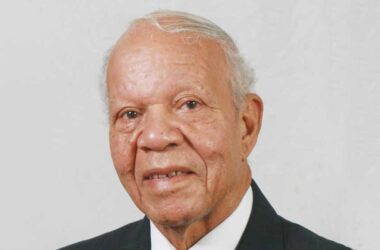IT will take a little while before the euphoria over the West Indies cricketing triumphs last weekend begin to wane, and it should, because the people of the Caribbean need to savour the moment for as long as is possible, the moment when to quote Muhammad Ali, our cricket again “shook up the world”.
One would have to be a keen follower of the regional team’s fortunes over the last three decades to appreciate the full impact of Sunday’s pair of victories following the win by our Under-19 team in the World 50 over series a few weeks earlier. From undisputed champions of the world in the mid-1980s, West Indies cricket had slumped almost to rock bottom and victories in any format of the game became few and far between.
As though the dismal performances on the field were not enough, a succession of disputes pitting the cricket board against the players undermined the confidence of both players and people. We seemed oblivious of the fact that all this was happening at a particular time in world history when tiny countries like ours were being marginalized by richer and more powerful nations, and that in this environment it was important for the one thing that united these “specks of dust”—our cricketing prowess– to become the flagship of the Caribbean endeavour in the world.
We will forget at our peril the geopolitics of the 1990s onwards when new terms of trade in the products that had built Caribbean economies began to emerge at the very time when aid flows to these developing countries were also coming under pressure. It was as if there was a massive conspiracy against our little islands.
Are we mixing politics with sports here? Of course, we are and we have to be on the ball, so to speak, to understand what is going on around us and why some of the things that are happening, are in fact happening. Why, for example, someone could have the gall to describe our athletes as being “short of brains”, a remark as degrading as others that had been hurled at our players in the past, especially by opponents from so called “first world” countries. The sweaty shirtless bodies of our cricketers doing their lap of honour around the stadium after the victory last Sunday was as powerful a statement as the clenched fists protest of American athletes Tommie Smith and John Carlos at the Mexico City Olympics in 1968.
We were pleasantly surprised to find that Darren Sammy, who comes from a poor, rural community in St Lucia, could so fully understand the context in which West Indies cricketers were performing these days by expressing the view that it was “us against the world”. So much for cricketers “short of brains”.
Ironically, we have ourselves, somewhat unwittingly given value to the unflattering remarks that have been made about our cricketers, by being unable for several years to put out on the field of play, in either format of the game, the best possible teams that we were capable of. Petty squabbles over money and the exchange of verbal unpleasantries between players and administrators robbed our teams of their talent which instead turned up to entertain fans in other countries. Report after report by some our very own people proposing rescue missions for our cricket remain ignored to this day.
What we saw in those three recent victories was West Indian cricketing brilliance as we once knew it. It demonstrated that if the West Indies can pick their best teams every time we go out on the field we can again become world-beaters. But the foundation for this must now be laid and this must start with attempts to end, once and for all, the verbal warfare between players and administrators that has been a constant feature of our cricket for too long. Cricket is too important to the Caribbean psyche for it to be mired in never-ending controversy.
Sadly, none other than Dwayne Bravo has expressed the view that even with the recent victories, he does not believe that anything in West Indies cricket is about to change. We hope Mr. Bravo is proved wrong.


![(L-R) World champions Darren Sammy and Johnson Charles. [PHOTO: Anthony De Beauville]](https://thevoiceslu.com/wp-content/uploads/2016/04/World-champions-Darren-Sammy-and-Johnson-Charles-mid-1.jpg)











